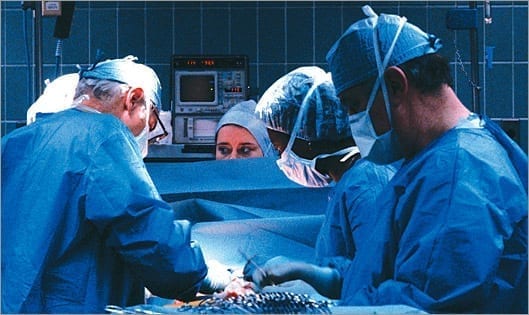Almost everybody knows that doctors are among the most overworked professionals in the United States. Medical school graduates often have to toil through grueling shifts after being matched with a specialty. For first-year physicians in training, the days are about to get even longer. A new rule issued by a Chicago-based regulations group now allows beginning medical residents to have their daily hours capped at 24, rather than the previously allowed 16.
The move has already sparked a flurry of discussion about what’s best for doctors and patients alike. Critics of the Accreditation Council for Graduate Medical Education’s decision have voiced concerns that letting first-year residents work 24-hour shifts is likely to end too often in tragedy.
“We know sleep-deprived people can have impaired motor skills and their memory can deteriorate,” said Dr. Michael A. Carome, who is the Director of Health Research at Public Citizen, a medical advocacy group.

Laypeople and professionals who oppose the new rule point to the case of an 18-year old man who died in a New York state hospital some twenty years ago. The college student had been under the care of medical residents who were on the tail-end of a very long night. An error in administering medication coupled with not enough supervision led to the man’s death.
The tragedy helped lead to the creation of limits workday limits for doctors in training. In 2003, the Accreditation Council determined that first-year residents couldn’t be on the job for more than 16 continuous hours. Residents in their second year or above were capped at 24 hours, with no trainee physicians being allowed to put in over 80 hours per week.
Between then and now, the Council had a change of heart. Research published in The New England Journal of Medicine showed that long work hours didn’t have much of an effect on patient care. Surprisingly, some surgical residents had even complained that the 16-hour cap hurt their education when they had to interrupt surgeries or pass on clients to doctors not up to date on a case.
The randomized trial showed that a majority of surgeons “strongly preferred” the option to work longer shifts, which improve the continuity of care.
“If you are a pediatric first-year resident taking care of a critically ill patient, and the child dies, do you just walk away from the family because the 16 hours are up?” asked Dr. Stephen Evans, who used to head the American Board of Surgery.
Other physicians, though, have been skeptical.
Dr. Samantha Harrington, who is a resident at Cambridge Hospital in Boston, felt that the 14-hour shifts she regularly works are long enough. She thinks residents have to work long hours due to the existence of a “patriarchal hazing system.”
Harrington isn’t alone in her criticism. Many physicians have decried the practice of assigning residents long shifts as a form of “hazing” or borderline “torture.”
“‘I went through it, so therefore you have to go through it too,'” explained Harrington, who told CBS news that the only way for her to stay awake on the drive home was to roll down her car window and get blasted in the face by freezing air.
Sources
The Experts: Are Medical Residents Dangerously Exhausted?
National Cluster-Randomized Trial of Duty-Hour Flexibility in Surgical Training
New Guideline Will Allow First-Year Doctors to Work 24-Hour Shifts
Should first-year doctors be allowed to work 24-hour shifts?


Join the conversation!